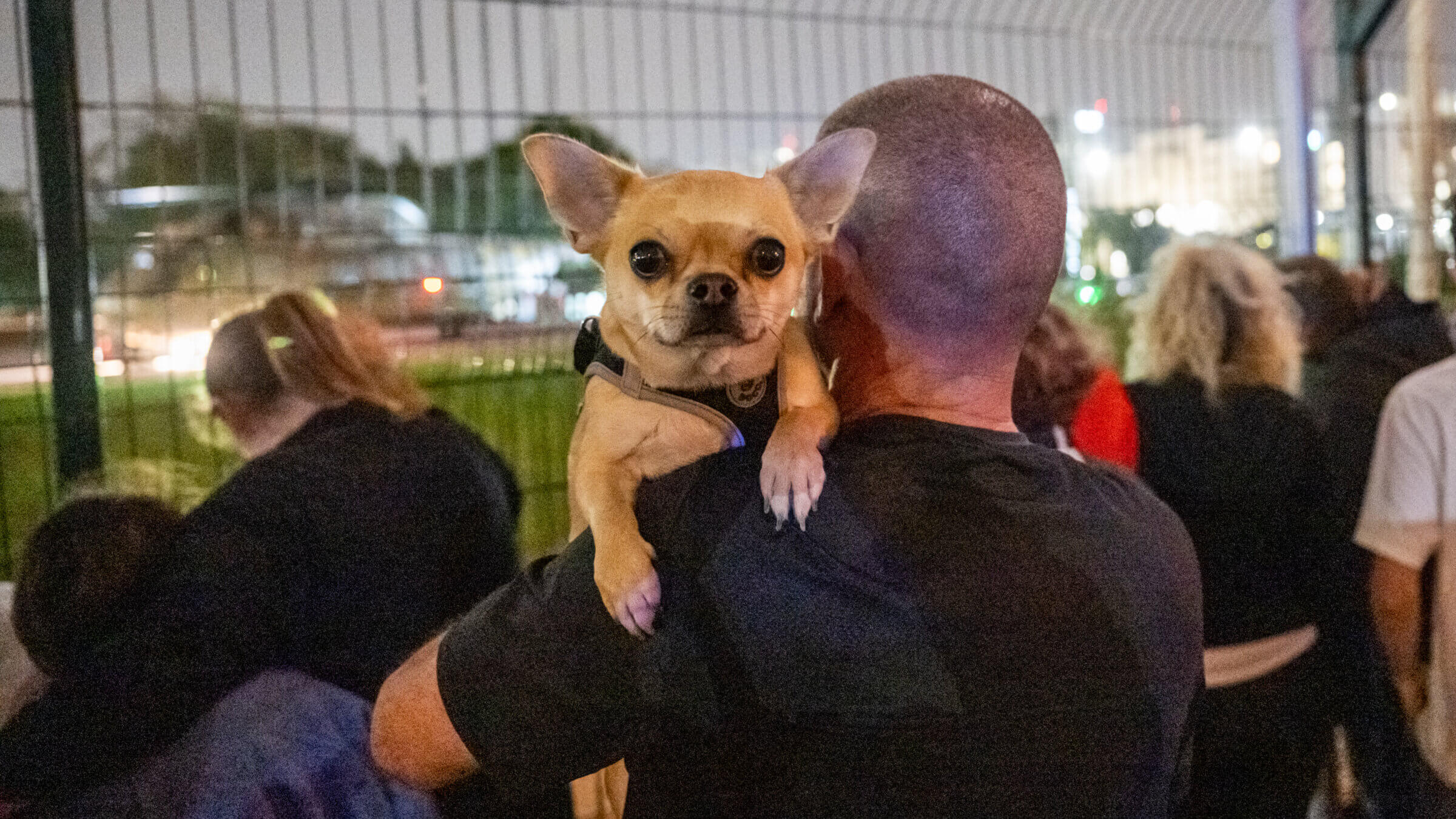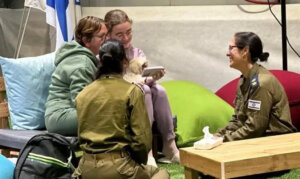How dogs are bringing comfort to released hostages and their families in Israel
Poignant reunions between newly freed owners and their canine companions have been flooding social media

A person holding a dog watches as a helicopter with released Israeli hostages lands at the Schneider Medical Center. Photo by Getty Images
In the unfolding story of Israel’s released hostages, dogs are emerging as the unwitting supporting characters. Videos capturing poignant reunions between the canines and their newly freed owners have been flooding social media.
The Brodutch’s family dog Rodney was brought to Schneider Children’s Medical Center to ease the transition back to Israel for Hagar Brodutch, 40, and her three children — Ofri, 10, Yuval, 9 and 4-year-old Oriya — after their release on Monday night.
“The family knew that nothing would make the Brodutch children happier than to see their beloved dog, Rodney, so they brought him to the department,” the hospital said in a statement which it released along with a video of the reunion.
View this post on Instagram
Rodney already earned fame in Israel after he accompanied Avihai Brodutch, the only member of the family not to be abducted, during a dayslong sit-in outside the Kirya military headquarters in Tel Aviv with a sign that read “my family is in Gaza.”

When the Brodutch family was seized from Kfar Aza by Hamas terrorists on Oct. 7, Rodney reportedly staged a daring escape, dodging bullets that claimed the lives of other dogs and kibbutz members, according to the Ynet news site. He sought refuge in another family’s home, hiding under a bed. When IDF forces evacuated families from the kibbutz amid ongoing gunfire the following day, Rodney was almost shot after an alarmed IDF reserve soldier encountered him in the dark.
“He was scared to death, howling and didn’t want to come near us,” Ynet quoted the reservist as saying.
When Mia Liemberg was abducted, her dog Bella also disappeared. Ever since, Mia’s father, Moshe Liemberg, has been tirelessly searching for Bella, including scouring dog-adoption forums online, determined to reunite the dog with his daughter upon her return. On Tuesday evening, footage appeared of Liemberg clutching her dog while flanked by Hamas terrorists.
A widely shared video of 9-year-old Irish-Israeli Emily Hand shows her being greeted by her sister and two dogs when she was released among the second group of hostages on Saturday. The pups are seen excitedly climbing onto Emily’s lap as she sits on the floor embraced by her older sister, Natali.
@cbsnews 9-year-old Emily Hand was reunited with her sister and two pet dogs 50 days after being taken hostage by Hamas from a friend’s house in kibbutz Be’eri on Oct. 7. Initially, Hand was believed to have been killed during the Hamas attack. #israel #gaza ♬ original sound – cbsnews
In the case of the Avigdoris, who were released on Sunday, a dog was not yet a part of the family, but getting one had been a hotly debated topic prior to Oct. 7. Hen Avigdori, whose wife Sharon and daughter Noam, 12, were abducted, went on Israel’s Kan public broadcaster and vowed to get his daughter a dog upon her return.
But according to Hen’s brother, Zohar Avigdori, that was only one side of the story.
“What we didn’t know is that while in captivity she was able to speak to her mother and extend that promise to having two dogs,” Avigdori told reporters in a video briefing on Tuesday.
He added that a volunteer with the civilian-led Hostages and Missing Families Forum had since been tasked with finding two dogs for the family to adopt.





















